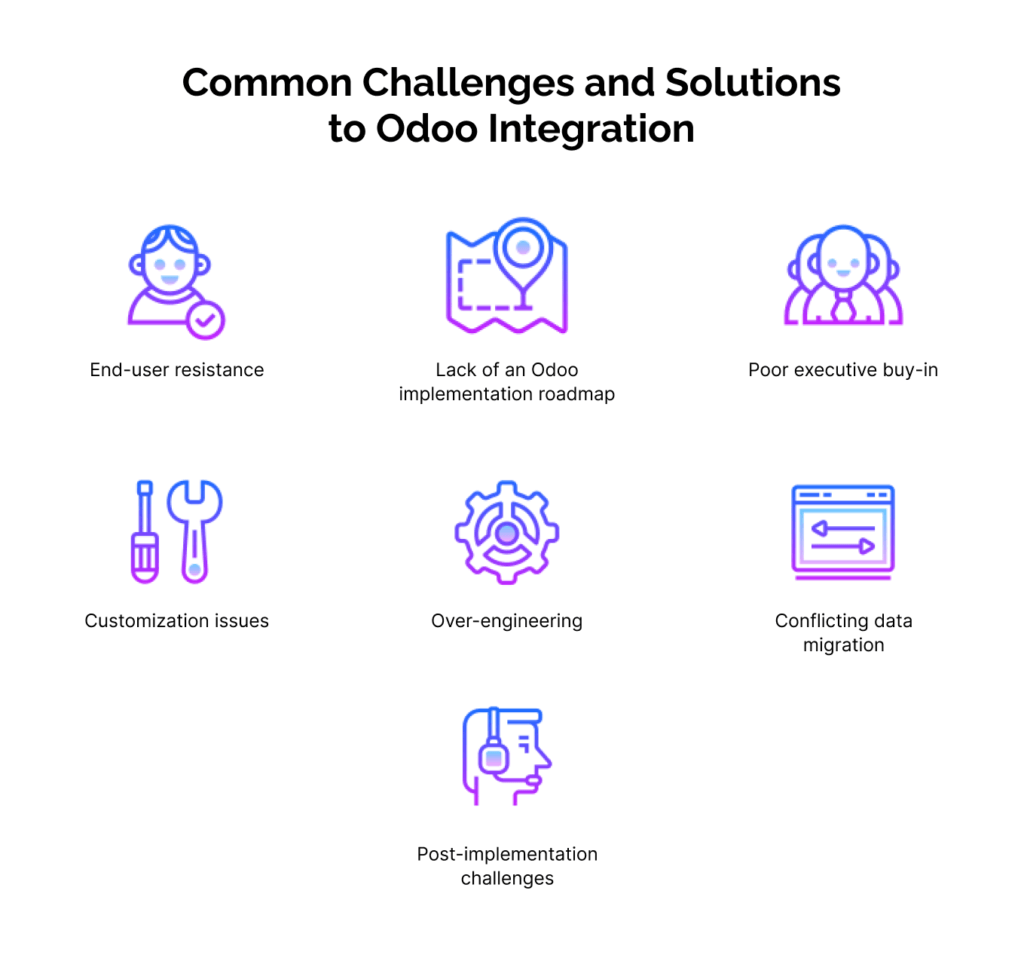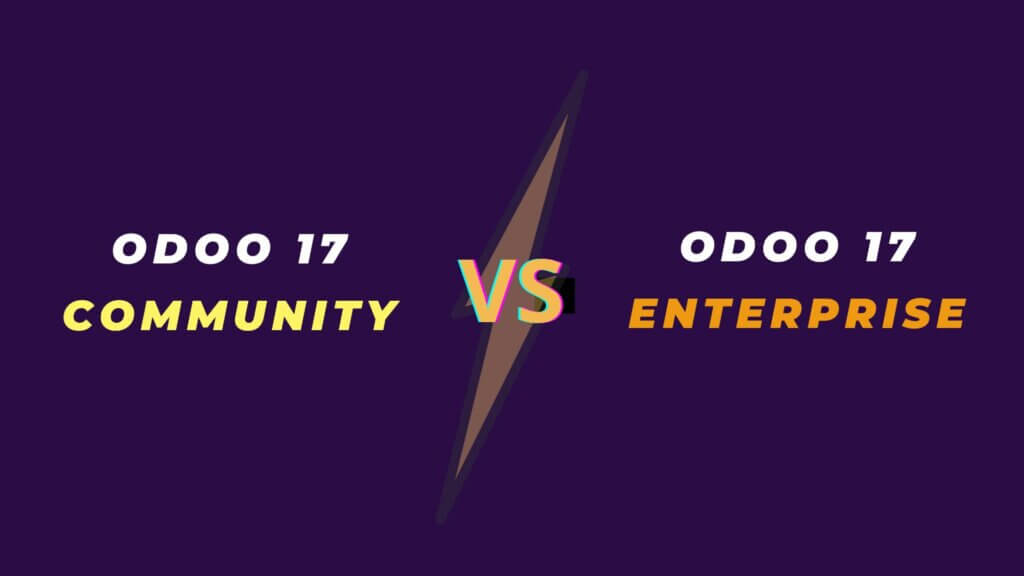The modern business landscape is a highly technological environment, where all functions and interactions are regulated by IT solutions, ERPs in particular.
Odoo ERP is one of the trailblazers in the realm of ERPs, as a versatile solution that brings integrity into the company’s structure and provides efficient and uninterrupted functioning. Of course, this kind of software doesn’t just come out of nowhere, it results from a well-outlined strategy based on effective Odoo integration and latent complexities that might come up along the way.
Let’s explore Odoo implementation obstacles and how to address them.

Common Сhallenges and Solutions to Odoo Integration
Lack of an Odoo implementation roadmap
Every successful enterprise is based on planning and roadmapping (as a visualized plan).
Unless the teams create a roadmap for their cooperation, implementation process productivity will fail to meet expectations.
The roadmap streamlines the whole communication process by featuring core aspects of the implementations: timelines, milestones, outputs, personal initiatives, project priorities, etc. It provides the end-to-end vision of cooperation, enabling the teams to have more control over the implementation process.
Poor executive buy-in
Successful integration is a two-way street, with both sides being engaged equally. Poor top management involvement will deteriorate the outcomes, as Odoo’s benefits will not be fully exploited.
It is important to showcase all the advantages of Odoo usage, and examples of successful projects, emphasizing the benefits it can bring to the company’s architecture and day-to-day performance. Another convincing feature is the ROI. It is worth estimating the ROI of Odoo implementation and emphasizing its positive growth. Once aware, a company’s leadership will express more interest in cooperation.

End-user resistance
Odoo is an innovative solution that changes the company’s management system to the core. Although beneficial, it may cause a certain degree of resentment among end-users (such as employees), who will have to change their habitual and individually structured working procedures.
Instead of simply making the employees aware of the forthcoming changes, businesses should help them navigate through all their challenges. Odoo’s functionalities and interface are all developed with end-user comfort as a top priority, yet, it is still better to offer organized training, to ensure the knowledgeability of all users.
Customization issues
Customization is one of the basic characteristics of Odoo, which makes it adjustable to any type of business structure. Yet, it is only attainable if the implementation procedure is handled by an experienced Odoo service provider.
When looking for an Odoo-provider, make sure they possess relevant experience and a long track record of successful projects. Remember, Odoo is a highly efficient yet complex solution; thus, don’t take any chances on hiring first-timers.
Over-engineering
Odoo is key to a company’s digital transformation; the superiority of its features maximizes a company’s performance in the global market; yet, ‘too much’ is simply too much.
While taking advantage of Odoo ERP is beneficial for workflow, overdoing it will bring unnecessary complications and slow down implementation progress. When outlining the goals of Odoo implementation, it is important to specify all the company’s pain points and prioritize its needs to allow the Odoo ERP integrator to make relevant customizations.
Conflicting data migration
When adopting a new ERP system, data migration is one of the core issues, as its existing structure and format may differ from a new system. All the delays in data transitioning lead to significant downtime, which interrupts the workflow and causes financial losses.
Before transitioning to an Odoo ecosystem, businesses should dedicate time and effort to sorting, cleansing, and organizing the available data, as it will provide the foundation of a new system.
All duplicate data should be erased.
Post-implementation challenges
Despite the success of an implementation process, it is the post-implementation period that can cause the biggest user challenges. It is important to establish long-term communication with expert Odoo implementation companies, who will always provide timely training, services, and assistance for Odoo usage.
In conclusion, Odoo ERP is a powerful solution regardless of the industry involved. It streamlines performance and benefits interaction across the whole company, thus maximizing its efficiency and profits.
Successful Odoo implementation requires a well-outlined strategy, obstacle-management roadmaps, and focused involvement of both the Odoo integrators and the company’s top management.
Get a grip on your Odoo implementation process
Recommended articles:
- Odoo Enterprise License Pricing and How to Reduce Cost
- The True Cost of Odoo ERP: Pricing and Ownership Insights
- Top 10 Reasons to Choose Odoo ERP for Your Business
- 10 most common questions to the official Odoo partner
----------------------------------------------------------------------
Education: Bachelor's degree.
----------------------------------------------------------------------
Experience:
Marketing manager
VentorTech
----------------------------------------------------------------------
Current position: Marketing manager VentorTech
----------------------------------------------------------------------
B2B Marketing
Google Tag Manager and GA
Motion Graphics Production






0 Comments